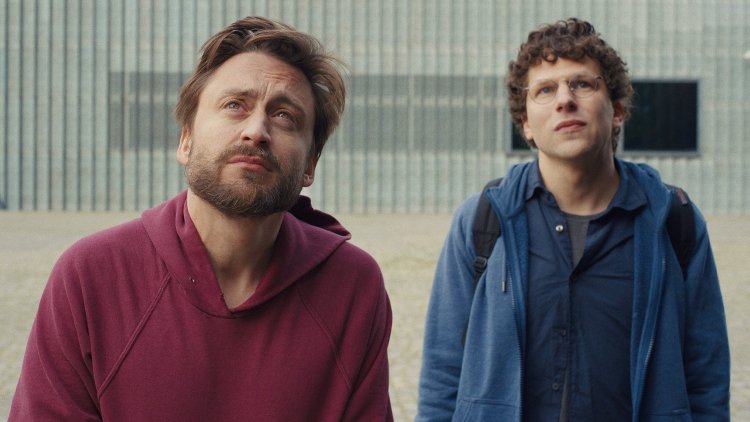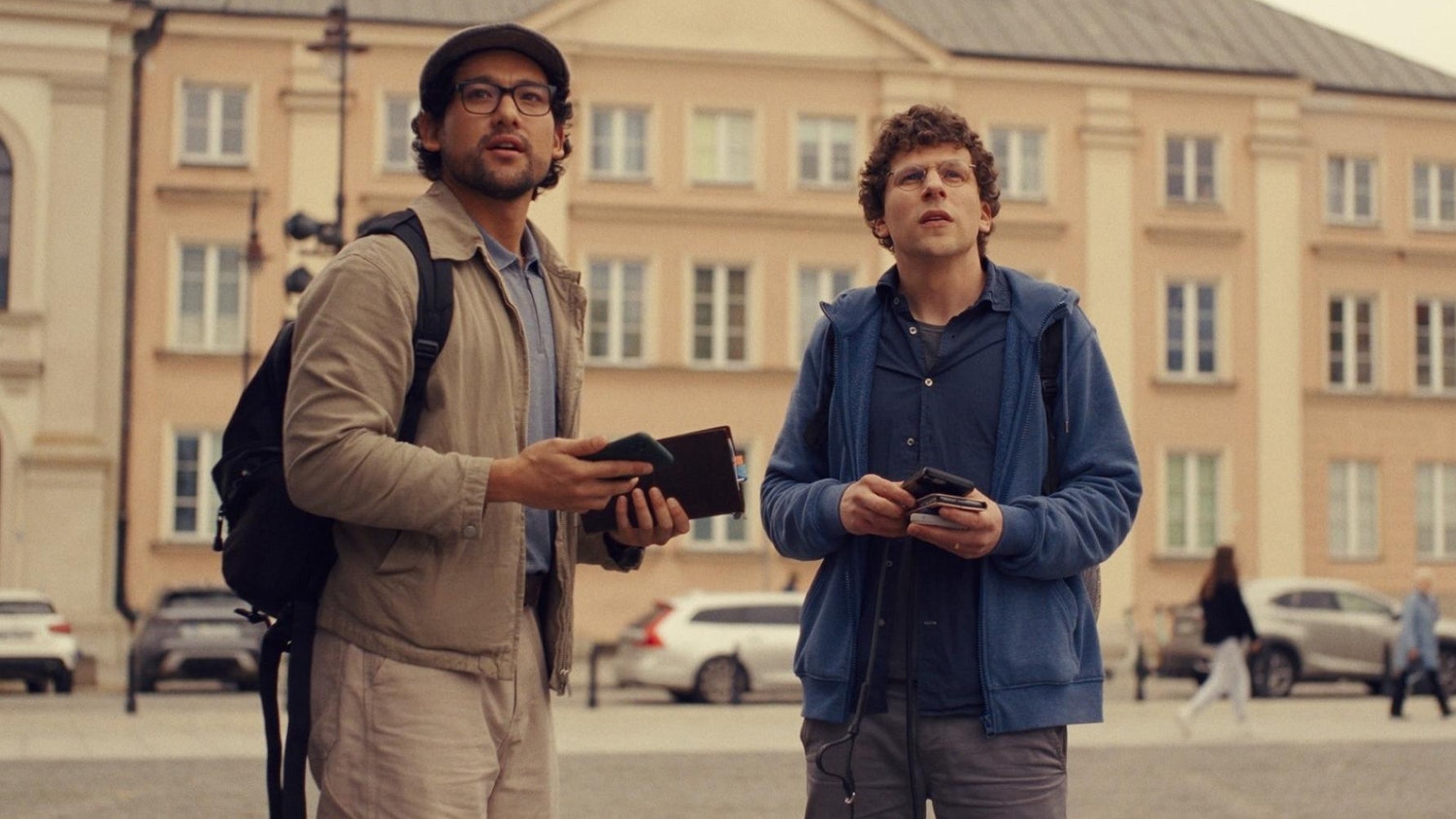A Real Pain
A Real Pain is a sublime, Rolls-Royce version of that often mis-handled genre:...

A Real Pain is a sublime, Rolls-Royce version of that often mis-handled genre: the mismatched-buddy comedy. Jesse Eisenberg’s second film as writer-director (after When You Finish Saving The World) pitches two Jewish cousins on a journey to honour their family ancestry in Poland. The result is a by turns funny, solemn and emotional road trip that flies by on two superb central performances from Eisenberg and Kieran Culkin.

Eisenberg economically sketches his diametrically opposed protagonists. His David is strait-laced and slightly nervy, living a successful life selling digital ad space in New York with a wife (Ellora Torchia) and adorable son (played by Eisenberg’s real-life son Banner). Culkin’s Benji is a loud-mouthed loose cannon, a wastrel who is going nowhere — he airmails weed to his hotel in Poland — but has enough charisma to get himself out of any situation.
Hooking up with their Holocaust tour group — perky LA divorcee Marcia (Dirty Dancing’s Jennifer Grey), solid older couple Diane (Liza Sadovy) and Mark (Daniel Oreskes), and Eloge (Kurt Egyiawan), a kindly Rwandan who escaped the country’s genocide and converted to Judaism — the pair visit various sites of Jewish interest before peeling off to the home of their grandmother, a Holocaust survivor who recently passed away.
Where A Real Pain scores heavily is in its central performances.
Eisenberg serves up some delicious Benji-led set-pieces — co-opting the group in a playful photo op before a Polish war memorial, storming out of a first-class train carriage because it feels at odds with the Jewish experience of trains during World War II, or berating British tour guide James (an excellent Will Sharpe) for dropping too many factoids — but it always rings human and true.
There’s a relaxed, Linklater-y quality to Eisenberg’s screenplay, deftly switching from wry comedy to something more serious and heartfelt. The title obviously refers to Culkin’s obnoxious extrovert but it also encompasses a broader investigation of how historical pain informs and butts up against more modern conceptions of hurt, debating the impossibility of parsing any contemporary experiences against the enormity of traumas felt by previous generations.
For all the clever dialogue (Benji: “Money is heroin for boring people”; David: “What does that even mean?”) and comedy of embarrassment, A Real Pain easily holds its own in the gravitas stakes. It is a testament to Eisenberg’s tonal grasp that the group’s visit to the Majdanek concentration camp, with the blue residue of Zyklon B gas still on the walls, feels apposite and extremely moving.
The filmmaking, often scored by Polish composer Chopin’s piano pieces, is modest and not particularly striking. But where A Real Pain scores heavily is in its central performances. A master at the awkward and nebbish, Eisenberg adds other colours — warmth and humour — perfectly conveying David’s concern for Benji, flecked with a jealousy and resentment over how effortlessly popular his cousin is. Culkin makes Benji a larger-than-life livewire but keeps him real, revealing a vulnerability and melancholy that speaks to a different kind of pain. Together, they deliver a brilliant portrayal of shifting family dynamics in all its complicated, relatable messiness.
What's Your Reaction?























